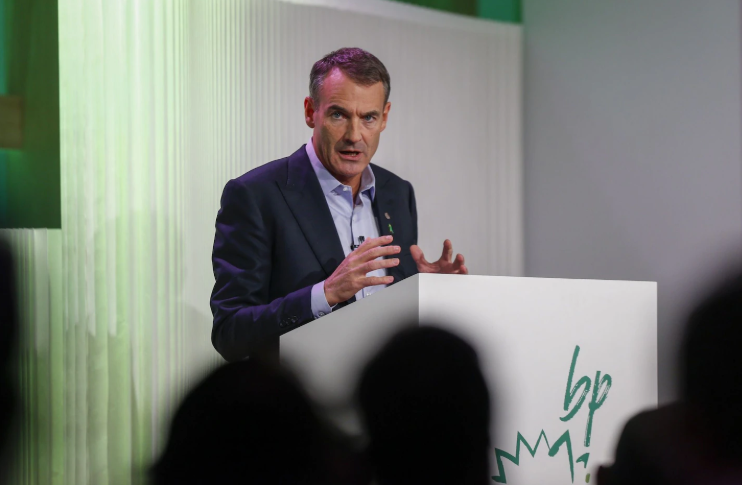
BP is withdrawing from three trade groups over climate policies, a move that comes after the company vowed to reach net-zero carbon emissions by 2050.
The oil giant is pulling out of the American Fuel and Petrochemical Manufacturers, the Western Energy Alliance and the Western States Petroleum Association, the company said Wednesday.
But BP will remain in the American Petroleum Institute, which has lobbied for the rollback of a wide array of environmental regulations aimed at addressing climate change. API has worked with the Trump administration to eliminate mandatory limits on methane emissions from oil and gas operations, supported the construction of major new oil and gas pipelines, and pushed for the expansion oil and gas drilling on public lands and in federal waters.
BP said that it was quitting WEA because it was “not aligned” with BP’s positions on clamping down on methane leaks. The oil giant said it was leaving the other groups because of differences over putting a price on carbon.
The company said that it had conducted reviews of 30 of its relationships with trade groups. In addition to the three it left, BP said there were five other groups that were only “partially aligned” with BP’s positions.
On Feb. 12, BP chief executive Bernard Looney said the company would slash its own greenhouse gas emissions to net zero by 2050. He also said BP would seek to alter the positions of some trade associations to which it belongs. If that fails, he said, the company would withdraw from those groups.
The company said that its six-month review “acknowledges that some in society have lost trust in BP and the industry more widely because of seeming inconsistencies between public statements and lobbying and advocacy.”
In a news release Wednesday, Looney said, “If BP is to stand a chance of achieving our ambition, then we have to earn back people’s trust.”

“Our priority is to work to influence within trade associations, but we may publicly dissent or resign our membership if there is material misalignment on high-priority issues,“ Looney said.
In the past, BP has worked closely with the trade groups it left today. It has had a position on the AFPM executive committee for the past three years. And as a member of the WSPA, it poured about $13 million into the oil industry’s more than $31 million campaign in 2018 to defeat a state carbon tax, or “fee,” that was championed by Washington Gov. Jay Inslee (D). BP said that it supported carbon taxes but argued the one in Washington state was badly flawed because of certain exceptions.
This month, by contrast, the company has supported Washington legislation that would give the state the authority to adopt measures to reduce greenhouse gas emissions. This followed a state supreme court decision that said the state lacked such authority.
After learning of BP’s exit, WSPA’s president Catherine Reheis-Boyd said in a statement Tuesday night that “while our partnership will look a little different, WSPA and our members will continue to work with BP and all stakeholders to engage in a civil public discourse around creating a sustainable energy future. It’s hard work, and we don’t always agree, but it’s a mission worth serving."